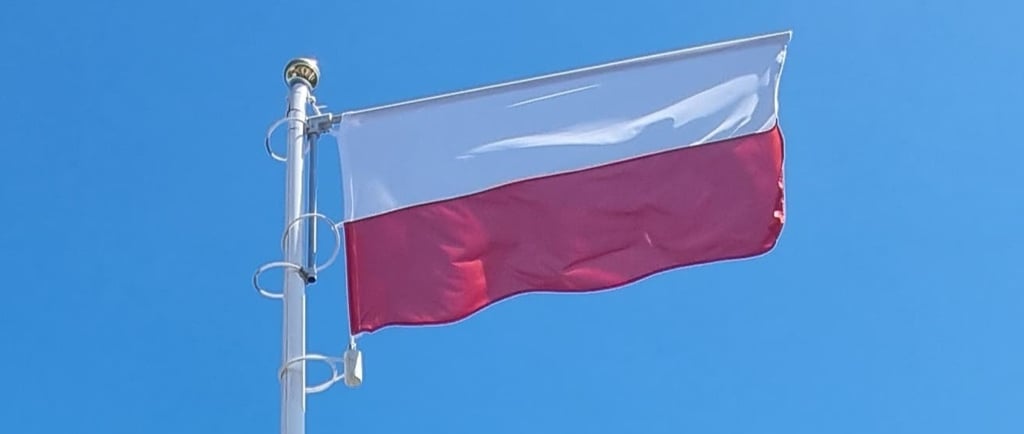Travel Essentials For a Trip to Poland
Useful items to have with you when visiting Poland
TRAVEL AND DAYS OUT
11/1/20244 min read


This post contains affiliate links, meaning I'll earn a small commission (at no extra cost to you) if you purchase a product by clicking on them.
Thinking of travelling to Poland? I'm obviously biased, but a great choice! Our bigger cities are full of character, lots of interesting sights, and great food - not really the poor post-communist hole that some people still seem to see it as.
As with any other place, there are a few useful things you should take with you to make the experience easier - most of these are also items that will be useful for any other European destinations.
Passport
It's a no-brainer really, of course you need a passport to travel abroad. The important thing is to remember that Poland belongs to the Schengen area, and following requirements apply to British citizens: the date of issue of your passport must be less than 10 years before your arrival, and the expiry date has to be at least 3 months after the date of your departure from Poland. Surely you've seen the countless social media articles about people who got caught out by those rules since Brexit, so make sure you carefully check the validity of your passport for travel.
In the case of dual British-Polish citizens, they're also legally required to use a Polish passport or ID card to enter and exit the country, because they'll be treated as Polish citizens while in Poland. Any children born to Polish nationals are automatically granted Polish citizenship, so while the border force don't usually ask for a Polish document upon entering the country, they have the power to refuse exit without one.
No-fee spending card, and cash
You'll be able to pay by card in majority of the places, but your UK high street bank will usually charge you a non-Sterling transaction fee. Online banks like Monzo allow you to spend fee-free, but what I found really useful is a prepaid card - not only can I use it without extra fees and get a good exchange rate, but only topping it up a certain amount of money helps me stick to a set holiday budget.
My personal choice is a HyperJar card - I actually got one for my eldest as an easy pocket money alternative that I can easily top up, because it has no monthly fees, unlike popular competitors such as Go Henry. HyperJar allows you to divide your funds into virtual jars, so you can set yourself a spending limit and don't go too wild while away. The adult card is free to order and easily managed through the free app, and if you choose to use it more regularly, you can enjoy discounts and cashback offers.
If that sounds good, you can find more information and order yourself a HyperJar card by clicking on the image below:
Some places, particularly local markets and some street food sellers will prefer cash, so that's handy to have but I'd say don't go wild with it. My preferred method of getting Polish Zloty is to withdraw directly from a Euronet cash machine - it's best to check whether your bank will charge you for the withdrawal, but the exchange rate usually seems better and you can quickly access the local currency without having to look for money exchange bureau.
EHIC/GHIC card, and travel insurance
Although I'm a Polish citizen, and so are the kids, we're not entitled to free healthcare there - the obvious reason being that we don't live there and don't pay any kind of NI contributions. This is why we always get travel insurance, and we also have the EHIC/GHIC.
In case you don't know - EHIC is the European Health Insurance Card, which is a free card that entitles you to medically necessary state-provided healthcare during a temporary visit to any of the EU and EEA countries. You get access to treatment just like any person insured in those countries, often completely free depending on the particular healthcare system. It's important to remember though, that it doesn't cover private healthcare or any pre-planned procedures, and won't cover any costs beyond what's provided by the public healthcare system. It's still useful for emergencies - one of my work colleagues found himself in a situation where he needed an urgent surgery, and without the EHIC he would've been looking at thousands of pounds of medical fees.
Since Brexit, EHIC in the UK was replaced by GHIC (Global Health Insurance Card) which works on the same principle. EU citizens residing in the UK with rights under the Withdrawal Agreement can apply for the UK EHIC instead. The cards are free and valid for 5 years - you can add family members to your application, but every person will receive their own card. Also, make sure to only apply through NHS and not any third-party websites that might try to charge you!
For more information and to apply visit https://www.nhs.uk/using-the-nhs/healthcare-abroad/apply-for-a-free-uk-global-health-insurance-card-ghic/
SIM card with EU roaming
Before Brexit, you could use your standard allowance in the EU with pretty much every network. Now most of them still offer this, but some introduced extra charges unless you've been with the network for some time before the changes - for example my husband is with Three, and unless you're on certain plan, there's a daily charge for their Go Roam of £2 in Europe and £5 in the rest of the world.
If your current plan doesn't offer free EU roaming, I'd recommend getting a SIM that does - I'm currently with Giffgaff on a monthly rolling plan, so my roaming is included with data capped at 5GB, while the PAYG gets charged at regular UK prices. Mr's other phone has a Lebara SIM, and again you can use your allowance just like at home with their plans, or at home prices on PAYG - you can also buy a Roaming Add-On for 10 or 15 days, which gives you a number of minutes and texts, plus a generous data allowance for your trip.
If you want to check out Lebara and some of their plans (you can get a 30-day SIM only plan for just £5), CLICK HERE and you can enjoy up to 50% off plans for 3 months using my referral code.
Power adapter
There are two types of plugs used in Poland - type C with two round pins, and type E with two round pins and a hole for the socket's earthing pin. To use your electronic devices you'll need one of the UK 3-pin to type C/E travel adapter. If your place of stay offers USB charging ports, you should be able to use your own charging cables as normal.
